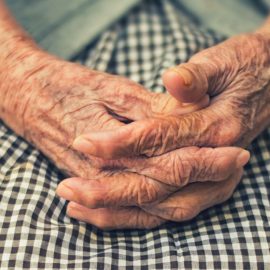

This article is an excerpt from the Shortform book guide to "Cribsheet" by Emily Oster. Shortform has the world's best summaries and analyses of books you should be reading.
Like this article? Sign up for a free trial here.
Want tips for a newborn sleep routine, like room sharing and sleep positions? Which routines work best, according to research?
According to Cribsheet, when making decisions for your newborn, you should consider your and your family’s unique situation: what’s best for your baby, you, and your budget. For a newborn sleeping routine, the book uses a research-based approach to give you the best tips and information.
Read on to learn the four key tips for a newborn sleeping routine, based on the research in Cribsheet.
Newborn Sleep Tips, According to Oster
When considering what’s best for you, Cribsheet author Emily Oster emphasizes that what’s good for you is often good for your child, too. Therefore, it’s important to consider your own desires, needs, and lifestyle when making a parenting decision. Oster claims that, unfortunately, many parents often choose what they believe is best for their child even when this choice would negatively impact them. Below, we share Oster’s four tips for a newborn’s sleep routine to help you make the healthiest, most beneficial choices for you and your child.
#1: Room Sharing
The American Academy of Pediatrics (AAP) recommends that you share a room with your baby for the first six to 12 months postpartum. Contrary to this, Oster cites evidence that sharing a room with your baby has benefits for only the first four months. According to Oster’s first newborn sleeping tip, it’s a good idea to share a room with your baby for the first four months because this is when the risk of SIDS (sudden infant death syndrome) is highest. SIDS is the unexpected death of an otherwise healthy infant. Sharing a room with your baby when their risk of SIDS is highest allows you to closely monitor them. After this, transition them to their own room. Research reveals that babies older than four months sleep better in their own rooms because it’s quieter.
(Shortform note: While Oster claims that room sharing has benefits for only the baby’s first four months of life (the main benefit being the reduced risk of SIDS), one expert claims that room sharing until your baby is six months old makes it easier to breastfeed them. During a baby’s first six months, they need to be breastfed overnight, and this is easier to manage when your baby is in the same room as you).
#2: Co-Sleeping
The AAP also recommends you avoid co-sleeping (sharing a bed with your baby) because it increases the baby’s risk of suffocation as well as their risk of SIDS. Oster shares the counterpoint that according to research, the risks of co-sleeping are low.
(Shortform note: Oster’s information on newborn sleep mainly focuses on describing the low risks of co-sleeping, but research reveals that co-sleeping also provides several benefits for parents and infants. First, parents who share a bed with their baby sleep for longer durations because they don’t spend time getting in and out of bed to feed their babies and respond to their cries. Second, babies who share a bed with their parents sleep more lightly, and light sleep is associated with synaptogenesis (the formation of connections among neurons in their brain).)
Furthermore, Oster argues that co-sleeping is safe if you minimize its risks. According to Oster’s tips for a newborn sleeping routing, there are two ways to minimize the risks:
- Avoid drinking and smoking: SIDS deaths are significantly higher when parents drink or smoke before co-sleeping.
- Remove the pillows and blankets from your bed: Soft items increase an infant’s risk of SIDS and suffocation.
(Shortform note: Experts note that SIDS has many risk factors, including those that Oster highlights here (parental drinking, parental smoking, and the presence of soft items in bed). According to research, an additional way you can minimize the risks of co-sleeping is to avoid taking sedating medications (such as certain pain relievers and antidepressants) before sharing a bed with your baby. Because these medications deepen your sleep, they reduce your ability to notice and respond to signs that your baby is suffocating or that you should adjust their sleeping position.)
#3: Sleep Position
Although infants sleep more deeply on their stomachs, Oster’s tips for creating a newborn sleep routine cite evidence that infants who sleep on their stomachs are eight times more likely to die of SIDS compared to infants who sleep on their backs. This is because stomach sleeping is associated with deeper sleep, and deep sleep is linked to an increased risk of SIDS.
(Shortform note: Parents may worry that back-sleeping could increase an infant’s risk of choking if they spit up while sleeping. Fortunately, experts claim that back sleepers are at a lower risk of choking than stomach sleepers. This is because when babies sleep on their stomachs, there’s a risk that anything they spit up will block the opening of their trachea.)
#4: Crying It Out
Oster explains that “crying it out” is having your baby sleep in their crib and leaving them alone even if they wake up and begin to cry. Some psychologists claim that this practice reduces infants’ attachment to their parents, and some people claim that parents who let their babies cry it out are cruel.
(Shortform note: Since the publication of Cribsheet in 2019, new research has suggested that these claims are incorrect. A 2020 study found that leaving your baby to cry it out doesn’t impact their attachment or development. Furthermore, this study suggests that leaving your baby to cry it out may help them develop an ability to comfort themselves, causing them to cry for shorter periods of time. Therefore, you could argue that letting your baby cry it out isn’t cruel: It’s a loving way to support their self-control. This research supports Oster’s position in favor of crying it out, which we’ll discuss next.)
Contrary to claims that letting your baby cry it out is cruel and reduces their attachment to you, Oster argues that crying it out benefits both children and parents:
First, children who cried it out as babies experience long-term benefits: higher levels of attachment to their parents and better behavior.
(Shortform note: For this newborn sleeping tip, Oster emphasizes the long-term benefits of letting your baby cry it out, but reaching these benefits may require you to resist your biological instinct to respond to your crying baby. Research shows that the sound of a baby’s cry activates a primitive part of your brain, immediately compelling you to pay attention to it.)
Second, babies who cry it out sleep for longer durations. This is because when they learn that no one responds to their crying, they stop crying and fall back asleep sooner.
Third, parents who have their children cry it out sleep better. This is because they don’t disrupt their sleep to comfort their baby and because their baby eventually cries less. Because these parents sleep better, they also experience higher rates of marital satisfaction and lower rates of depression and stress.
(Shortform note: Whether you’re a baby or an adult, good sleep supports your health, and sleep deprivation harms it. In Why We Sleep, Matthew Walker claims that sleep supports your mental and emotional health: It improves your muscle memory and long-term memory, dulls the sting of painful memories, and boosts your problem-solving skills. In contrast, sleep deprivation reduces your capacity to regulate your attention and emotions and increases your risk of diseases such as diabetes and cancer.)

———End of Preview———
Like what you just read? Read the rest of the world's best book summary and analysis of Emily Oster's "Cribsheet" at Shortform.
Here's what you'll find in our full Cribsheet summary:
- Why there isn't one right way to parent a young child
- How to make research-based parenting decisions
- When you should start potty training your toddler






